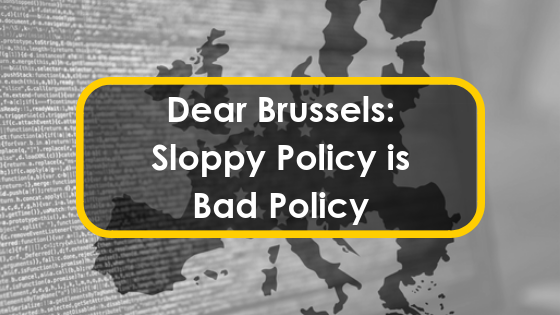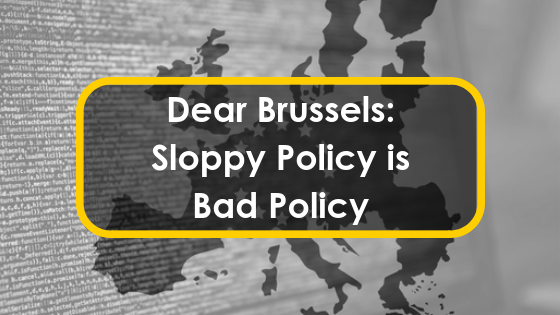Once again I find myself siding with Big Tech, this time on Platform Regulation. I feel so dirty.
I’ve written before about policy makers and their growing obsession with reigning in the big tech companies. I understand where this impulse comes from. The tech sector is too important to ignore, but it is also too valuable to break. And so I find myself wading in on yet another aberration brought on by regulator’s zeal to wage war on the wicked, no matter who gets caught in the crossfire.
The challenge this time is how to ensure that online marketplaces (think “Amazon”) treat their business customers (think “the Acme Digital Apple Peeler”) fairly in rankings and such. The goal is a level playing field for all (nevermind how you go about measuring that). Seems reasonable enough.
I’ll start with a simple observation that seems strangely out of place, but is actually being debated at this point: operating systems are not market places. These are two different things. This seems obvious.
For some reason, someone is trying to scoop operating systems into a law designed for digital marketplaces. This leads to another point: sloppy regulation is bad regulation. The best laws are precise, targeted, and limited in their scope. Franken-law tends to spawn unwelcome and damaging second and third order effects. Too often it’s the little guys that suffer.
The digital economy is deeply enmeshed in almost everything we do. Developers and startups in particular are reliant on a vibrant internet ecosystem to collaborate, create, and launch new products. Measured regulation that gently steers things in the right direction is welcome, and in many areas probably overdue. Today’s debates on data protection versus data freedom are a great example of conversations that have been put off for too long.
The EU is coming to the end of a long conversation about the rules under which online platforms should operate. The goal was to prevent bias in the rankings and results, and to ensure transparency so that even-handedness could be confirmed. The targets were a handful of app stores, search engines, and online shopping malls that hold special status in this space – intermediaries that help organize commercial exchanges between their millions of participants.
Unfortunately, the scope of these rules has grown to encompass all platforms where buyers and sellers meet, both big and small, and regardless of whether the market power rests with the platform or the businesses that use them. We’ll ignore for the moment the burdens the law will place on small players, and how this will likely entrench the largest platforms to the detriment of startups and innovators.
What we’ll focus on is the creep in scope that now equates “operating systems” with “online shopping services”.
I understand that there are folks out there that feel their business prospects would improve if everyone else in the digital ecosystem gets labeled as an unfair obstruction. Lobbying, after all, is just another way of capturing marketshare. But using rules designed for one thing to regulate another thing inevitably leads to bizarre and damaging outcomes. Operating systems do not rank, or filter, or manage, commercial markets. App stores are the venue for that, and of course they’re in-scope for this law.
Operating systems and APIs are the technical interface that enables the app economy to thrive. For most developers, they are a critical layer supporting interoperability by divorcing the hardware from the code that developers produce. While ensuring fairness in the various app store markets is a reasonable goal that the stores themselves try hard to achieve, misapplying platform rules to operating systems risks damaging the open source movement and the democratization of the digital economy.
Here is my ask to regulators: don’t staple together mismatched markets and call them the same. They’re not, and you’re making a mess of things.
And to those pushing for the change in scope: if your complaints are legitimate, they’ll stand on their own. Don’t hide them inside something unrelated.
<climbs down off his soapbox>
And now I need to go wash my hands and get back to fighting for the little guys that are collateral damage in all of this.






